AI quiz
This lesson provides an opportunity for students to draw on their ethical understanding when asked to respond to different scenarios. The scenarios feature information systems that incorporate an AI application. Students are given four options to select which one they believe to be the ‘right’ thing to do. Students develop a set of guidelines for ethical AI development.
Additional details
| Year band(s) | 5-6, 7-8 |
|---|---|
| Content type | Lesson ideas |
| Format | Web page |
| Core and overarching concepts | Impact and interactions |
| Australian Curriculum Digital Technologies code(s) |
AC9TDI6P06
Evaluate existing and student solutions against the design criteria and user stories and their broader community impact
AC9TDI8P10
Evaluate existing and student solutions against the design criteria, user stories and possible future impact |
| Technologies & Programming Languages | Artificial Intelligence |
| Keywords | Artificial Intelligence, AI, artificial, intelligence, teachable machine, algorithms, problem solving, Lesson idea, Lesson plan, Karsten Schulz, Digital Technologies Institute, quiz |
| Integrated, cross-curriculum, special needs | Digital Literacy, Ethical understanding |
| Organisation | ESA |
| Copyright | Creative Commons Attribution 4.0, unless otherwise indicated. |
Related resources
-

Classroom ideas: Choose your own adventure (Years 3-6)
In Digital Technologies, students from Year 3 onwards should be planning and implementing projects that include branching (decision-making). Creating a ‘choose your own adventure’ story is an excellent way for students to design and implement a project that makes use of branching.
-
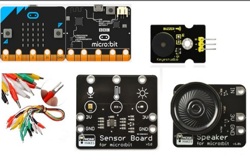
Classroom ideas: Micro:bit Environmental Measurement (visual and general-purpose programming) (Years 5-8)
Investigating environmental data with Micro:bits: This tutorial shows the coding needed for digital solutions of some environmental issues that can be created using pseudocode and visual programming.
-
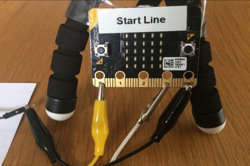
Creating a digital start line and finish line with micro:bits (Years 7-8)
The following activity suggests one-way Digital Technologies could be integrated into a unit where vehicles are being designed and produced.
-
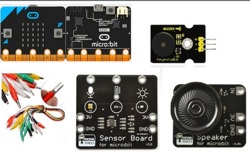
Classroom ideas: Micro:bit Environmental Measurement (visual programming) (Years 5-6)
This tutorial shows the coding needed for digital solutions of some environmental issues that can be created using pseudocode and visual programming.
-

Developing user stories
These teacher slides can be used to introduce and develop understandings about user stories and how to write a user story based on a users needs and goals. In this set of slides we use several examples to illustrate the format of a user story.
-
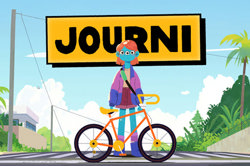
Journi online road safety education program
Journi is a free online road safety education program, developed in collaboration with experts in road safety and education to help keep kids safe. Journi is comprised of 4 flexible online modules and a suite of offline educator resources including lesson plans and student activities that align to Version 9 of the Australian Curriculum.
-
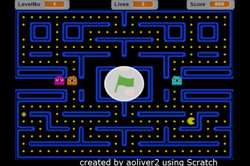
What makes a good game?
This lesson sequence allows students to explore design thinking processes to investigate how games are designed, created and played.
-
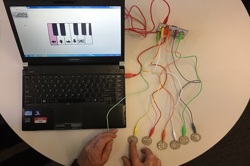
Makey Makey Orchestra
In this learning sequence students explore an orchestra and use Makey Makey to make a musical instrument for an ensemble.
